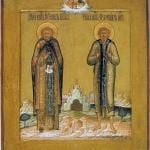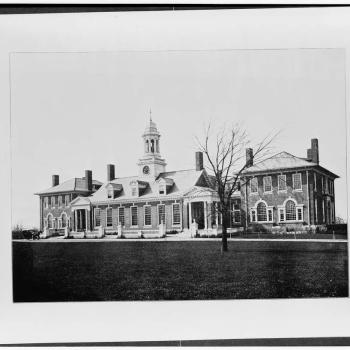This feeling—the sense of loss, anger, and alienation—is a winter. The only response seems to be wrapping oneself in self-assurance, even when faced with the most profound weakness. One’s emotional struggle can only be sufficiently fought by standing still, by embracing the cold winds, by refusing to feel the chill. Twilight comes early; nevertheless, the night must be weathered, must be faced.
And it is for this that I thank God—for strength, for purpose, for the very fact of being. Even when I am at my lowest, when the weather is at its coldest, when I can barely stand it anymore, I must give thanks. For what else is there? Self-accusation, the self-cold shoulder, a sense of impending doom? I thank God for the stillness of the night, for my ability to silence myself, or, at least, to ignore what my mind is saying. There is strength in such lowliness, such acceptance of circumstance. Quiet self-control is humbler than blasting the trumpet in one’s own face. I thank God for this.
We must, however, be careful, for there is a danger here too. This humility must not transform again into its opposite. I have seen it too many times—a person so caught up in the rhetoric of our lowliness before God that he or she ends up mired in self-denial, a twisted self-congratulatory asceticism. We are made great in our smallness and small in our greatness: this is true. But God never desires that we end up where this reflection started—in self-obsession that masquerades as apology and repentance. We come to love ourselves more through righting our wrongs, because we know that whichever part of us made such a miracle possible must be of God, must be divine.
These cold months and depressive feelings make me think of Shakespeare’s “Sonnet 73”:
That time of year thou mayst in me behold
When yellow leaves, or none, or few, do hang
Upon those boughs which shake against the cold,
Bare ruin’d choirs, where late the sweet birds sang.
In me thou see’st the twilight of such day
As after sunset fadeth in the west,
Which by and by black night doth take away,
Death’s second self, that seals up all in rest.
In me thou see’st the glowing of such fire
That on the ashes of his youth doth lie,
As the death-bed whereon it must expire,
Consum’d with that which it was nourish’d by.
This thou perceiv’st, which makes thy love more strong,
To love that well which thou must leave ere long.
(Shakespeare, “Sonnet 73”)
“Those boughs which shake against the cold” perfectly describes the emptiness of winter; we become “bare ruin’d choirs,” devoid of the happiness we once knew. And yet, emptiness is fecund; life springs anew from the cold. “Blessed are the merciful, for they will be shown mercy” (Matthew 5:7). Let us be merciful with ourselves and with the season; only then will we know the love we seek.













